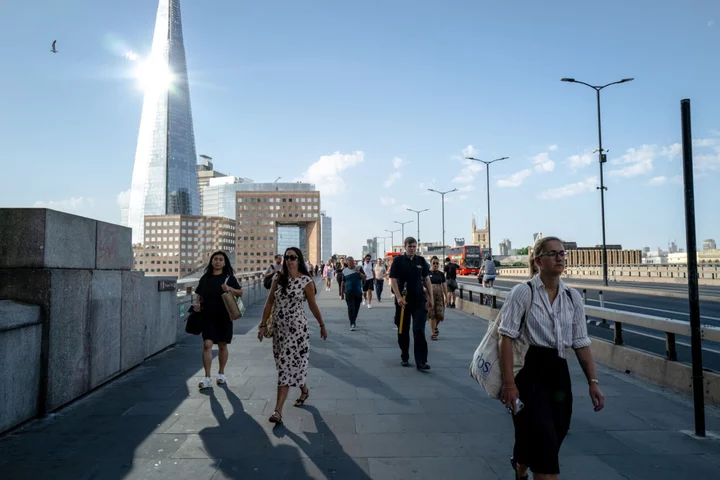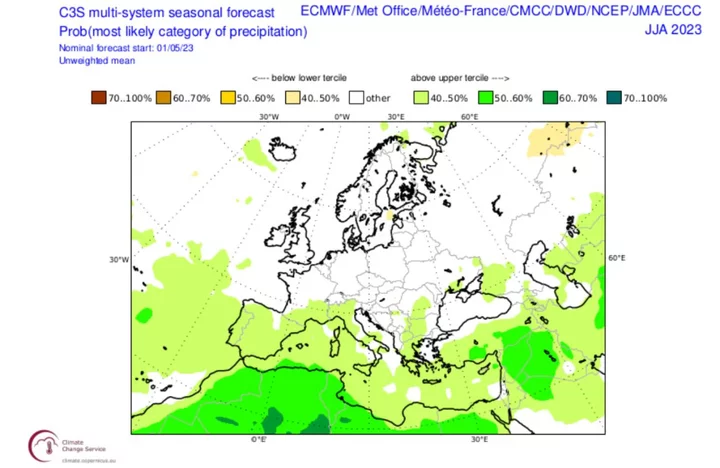European countries are among the least prepared in the world for more hot days in a 2C warmer world, a study has warned.
Switzerland, the UK and Norway will see the biggest relative rise in days with uncomfortably hot temperatures if global warming reaches 2C, and the countries do not have the required infrastructure or building design to keep people cool, researchers at the University of Oxford said in a study published in the journal Nature Sustainability.
“The danger is that we don’t have suitable buildings, and we can overheat them in the summer,” said Nicole Miranda, one of the study’s authors and a researcher at the Oxford Martin School in England.
The study compared the estimated temperature averages under 1.5C of warming with those under 2C of warming, and calculated the number of “cooling degree days” — a metric used to measure the amount of time average daily temperatures spend above 18C (64.4F). Above this threshold homes and buildings are likelier to demand more energy for cooling through air conditioning or fans.
The top 10 locations for extra relative demand include eight countries in northern or central Europe, as well as New Zealand and Canada. All are expected to see an increase of more than 20% in days that require cooling if the world warms to 2C, compared with 1.5C.
More than 60,000 people are estimated to have died as a result of hot temperatures in Europe last summer, a study found earlier this week. The countries that will see the biggest relative rise in hot days are poorly-prepared and ill-adapted for heat. Homes are mostly built to help inhabitants tolerate cold, with dark roofs, little external shading and poor ventilation, the authors said. A rise in air conditioning demand would place strain on energy networks and power supplies, particularly as fossil fuels are phased out and replaced with more intermittent renewable energy sources.
Miranda said there is a danger that air conditioning will be prioritized over better building efficiency as temperatures rise. “A vicious cycle is developing — by buying more air conditioners we use more energy, leading to more greenhouse gases and global warming, and then we buy more air conditioners again,” she said.
Signatories of the Paris Agreement on Climate Change pledged to limit warming to “well below” 2C and “pursue efforts” to limit it to 1.5C. Average warming is already 1.1C above pre-industrial levels and meeting the 1.5C target appears “increasingly out of reach,” the study notes. Overshooting 1.5C and hitting 2C would “dramatically exacerbate heat exposure and energy demand for cooling,” it adds.
Central African countries, particularly the Central African Republic, Burkina Faso and Mali will experience the biggest absolute rise in the amount of time when cooling is required. Poverty will limit people’s ability to adapt, said co-author Radhika Khosla, associate professor at Oxford’s Smith School of Enterprise and the Environment. “Heat is a huge barrier to development, and we know that extreme heat actually suppresses economic growth,” she added. “No country is shielded from these impacts.”









